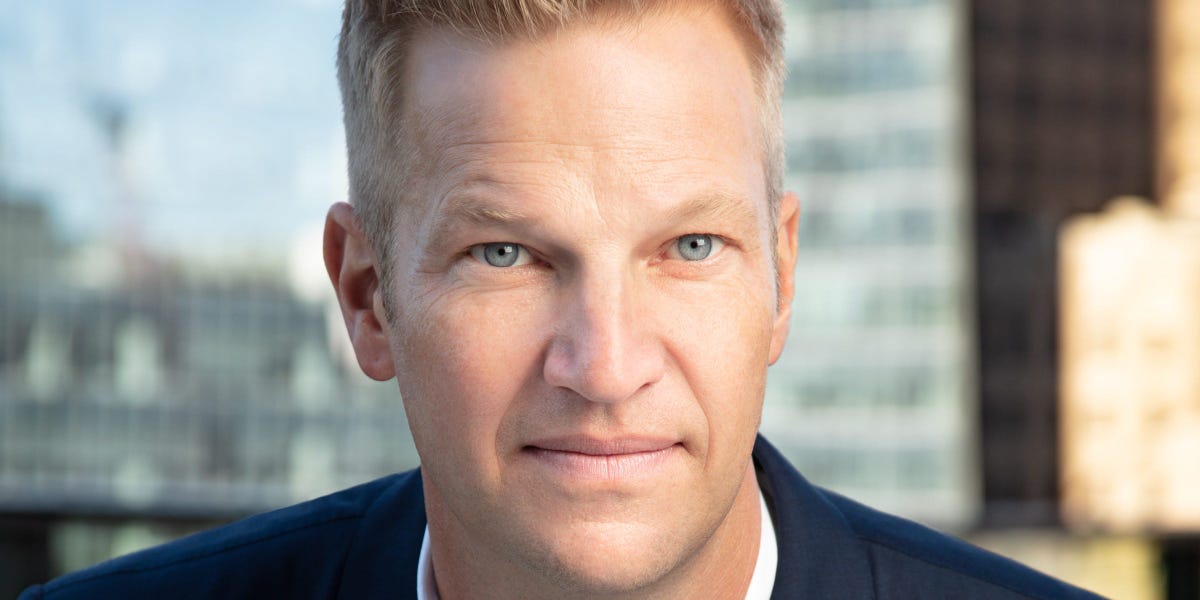Ad giant WPP’s media investment division GroupM has grown more than 23% since Christian Juhl took the reins as global CEO in 2019, but it stumbled this year, having lost more than $1.6 billion in business to competitors in the US alone, according to the research firm COMvergence.
GroupM — which has 82 markets around the world, 44,000 people, and is responsible for placing $63 billion in media dollars annually — is in the midst of a multiyear plan to simplify its business to sharpen its competitive edge.
From next year, GroupM will allocate budgets and resources solely on a country-by-country basis as it shifts to a country-level profit and loss model, Juhl confirmed to Insider.
While GroupM always had country-level P&Ls, it previously let its individual agencies — EssenceMediaCom, Wavemaker, MSix&Partners, and Mindshare — be responsible for their own budgets.
This move is the latest in Juhl’s plan to make these different media agencies follow similar business practices across all of the markets in which GroupM operates. Under Juhl, GroupM centralized media delivery within a unit called Nexus and centralized all of GroupM’s data and technology within a unit called Choreograph. In practice, this means if one agency has a useful tech solution, other agencies could access it too.
“Our strategy is more about everybody realizing they cannot harness the power of technology, single systems, and processes on an individual market or brand level — it has to be done on an enterprise level to get the benefit of the collective intelligence,” Juhl said.
Heads of individual agencies will still be responsible for client growth and profitability, but the removal of their P&L responsibilities is expected to create more efficiencies across the group and free up more time to focus on client strategy, Juhl said.
While Juhl downplayed the significance of the P&L shift, one former executive at rival ad firm Publicis Groupe, which went through a similar process several years ago, said it could help the business, but roil agency leadership ranks.
When Publicis Groupe did it, this person said, the move allowed agencies to pull talent and resources from different parts of the organization without the complexity of figuring out on which balance sheet that should be charged to, or how bonuses should be divided between different agencies when they work together on a project.
On the other hand, owning the P&L can be an “enormously emotive” topic, this person said, and some agency leaders may feel as though their power and responsibility is being diminished — and that their performance is less visible to senior leadership.
“It did get them to a better place,” said the former Publicis exec. “But a lot of people ended up leaving.”
Juhl believes his strategy to simplify the business and standardize training and other processes will offer staffers more career opportunities because it will be easier to shift jobs within GroupM.
“There’s a lack of scaled talent in the industry, especially as we go through yet another iteration of moving into AI and technology and software enablement — that’s yet another skillset we have to bring into the modern agency system and that is a challenge,” said Juhl.
Juhl said that despite the push to streamline its business, GroupM’s individual agency brands will continue to operate as separate entities rather than a homogenous media group.
“Sometimes those agency brands reflect the culture of the clients they’ve grown up with. So EssenceMediaCom has a Google-y sense to it and Mindshare has a Unilever sense to it,” he said.
GroupM has other challenges it must confront as well. Juhl is also dealing with the fallout of a police investigation into allegations of bribery within its China unit and he is also on the hunt for a new North America CEO after Kirk McDonald said last month he will leave the company by the end of the year.
WPP said last month it will reveal more details about its plans to simplify GroupM at its Capital Markets Day in January.
Read the full article here





